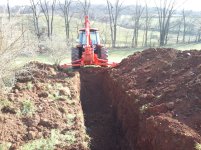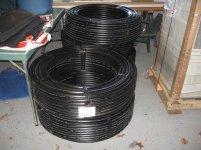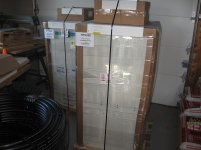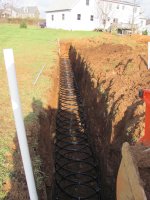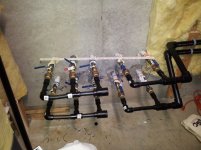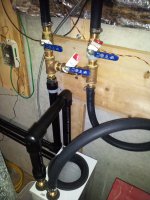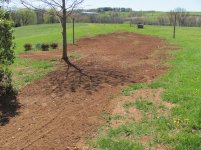My house is about the same age as yours, and it's surprisingly easy to heat. It has been insulated (well, as much as you can with plank construction), and we fixed the couple of places where drafts were getting in. The bathroom can get a little chilly for my wife's preference (it's fine for me)...it's on the opposite corner of the house from where the stove is. A small space heater takes care of it. We do have a couple fans to help circulation.
As far as the "exacting building codes of the 1830s" go, the biggest downside we have is that whoever built the house apparently didn't own either a level or a square. :laughing:
Curiously, what was the payback time on the geothermal? ISTM it would be decades (and it still doesn't work when the power is out). How does it deal with really cold weather where traditional heat pumps give up and switch to straight electric heat?
I live in northern N.H. where it rarely gets hot enough to need A/C.
In my case I estimate my payback time was give or take 4 years. The geo salesmen all wanted to know what my heat bills were, but I really didn't have any since I cut wood from my stand. Making 20 cords was getting old after 45 years, and so was I. The agreed upon estimate was about 1,000 gallons of oil annually would be about right, and another $500 in propane for hot water (my supplier murdered me on small customer = high per gallon charge.) There were a lot of state and federal rebates at the time which halved the original cost of $24,000 down to about $12,000. Since those programs have been cut back geo sales have gone down but companies faced with reduced interest have lowered their prices to stay in business. Also this area is heavily dependent on natural gas in almost all areas except mine, and gas is a super bargain right now.
The central air conditioning was a nice little perc., but yeah, I live near Buffalo and only really need it a few days a year.
The geothermal will not work without electricity. In 40 years here I don't think we've ever had more than a few hours without electricity; I live about 2 miles from an electric substation so that helps. Over the years I've had backup generators which I would run once or twice a year to keep rust off, never needed them so they were sold.That's also why I keep a few cords on hand just in case. Because of a settlement from the state power authority I get a residential agricultural break on my electric lowering my electric bill by anywhere from 15% to 40% per month depending on an incomprehensible formula used.
Ground loop eating up less than 1/4th acre; 57 degrees at 8 feet down, some high tech heat pump doing the heavy lifting. The system can keep up on brutal days, it has to work hard to do it, but I am concerned that towards the end of the heating season I've taken so many BTUs out of the ground I've likely lowered the ground temps a few degrees, making the system work harder for the same amount of heat. I have always kept the breakers for the supplemental electric heat in the off position. That's why I supplement with wood a few times a year.
Apparently levels and squares weren't invented by the 1830s. We like to say that our house has "character", a nice way of putting it.

